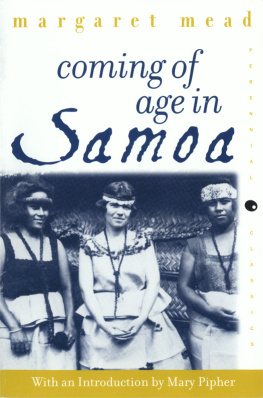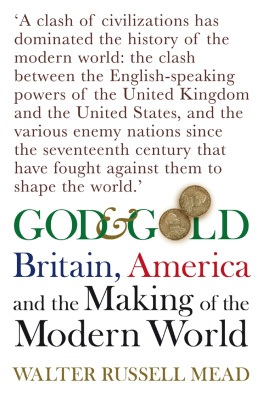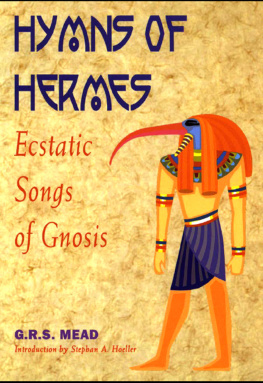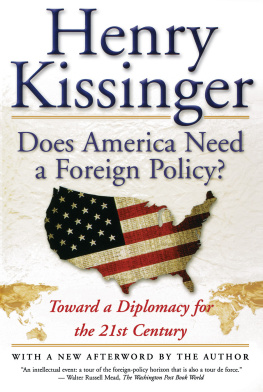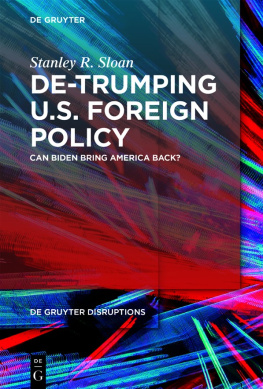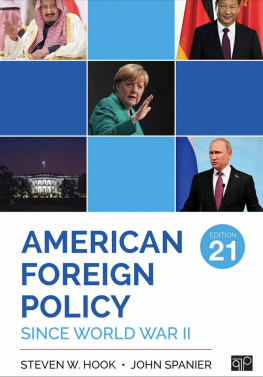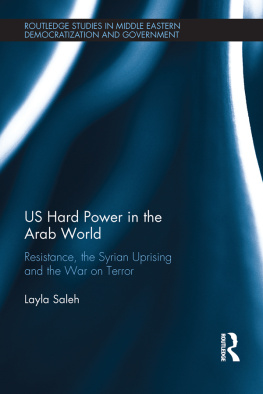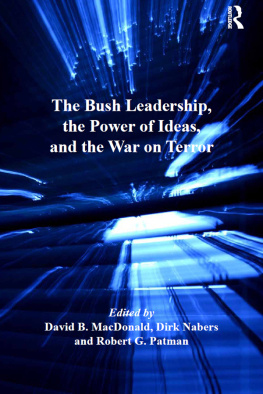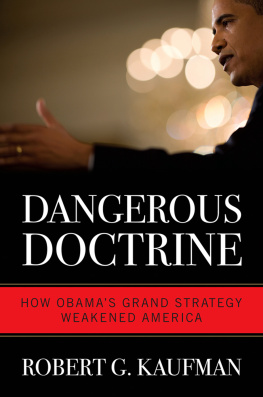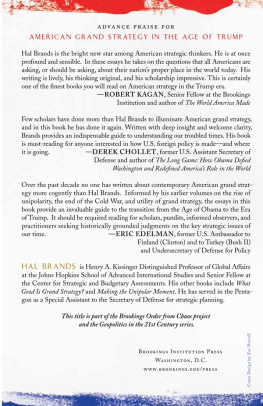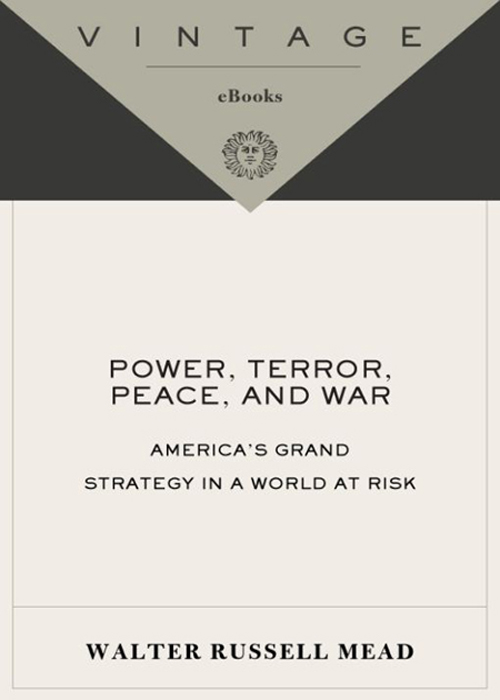
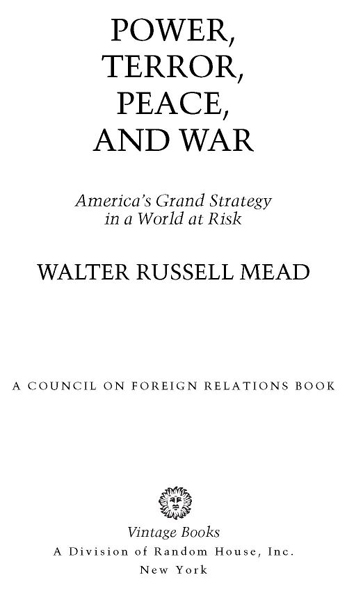
Table of Contents
To Allen Adler
The glory of friendship is not the outstretched hand,
nor the kindly smile, nor the joy of companionship;
its the spiritual inspiration that comes to one
when he discovers that someone else believes in him
and is willing to trust him with his friendship.
Ralph Waldo Emerson
International acclaim for Walter Russell Meads
POWER, TERROR, PEACE, AND WAR
[A] comprehensive approach to American foreign policy, one that considers not merely the terrorist challenge but the economic angle as well.
TheWeekly Standard
Power,Terror, Peace, and War gives clarity to our understanding of Americas current imperialistic power.
Esquire
In so accurately describing the world we now live in, this book helps point the way forward.
TheGlobe and Mail (Toronto)
A splendid work.... [Meads] even-handed and candid assessment of our foreign policypast and presentis informed, perceptive and valuable.
Henry A. Kissinger
The author should be congratulated for his courage.... Mead writes brilliantly about the French pratfalls on the eve of the Iraq War [and] ends on a high note of American noblesse oblige to the rest of the world.
TheNational Interest
An intellectually subtle, historically significant, and politically savvy discourse on Americas role in the world. The product of a truly creative mind, Meads elegant and most timely essay should be read by everyone concerned about this countrys destiny.
Zbigniew Brzezinski
Powerful.... An excellent explanatory work.... Well worth both the read and then the serious reflection.
TheDecatur Daily
With this book, Walter Mead cements his position as one of the leading thinkers on U.S. foreign policy and international affairs. In this truly important work, he cuts through noisy debate to identify the new realities and the steps we must take to forge effective policy.
Leslie H. Gelb, President Emeritus,
Council on Foreign Relations
This powerful book should rank with the best of historical analysis [and] stay on your shelf a long time.... It looms large in thoughtful historical perspective and analysis.
SantaFe New Mexican
INTRODUCTION
The American Crisis
Late in the summer of 2001, I saw the movie PearlHarbor. Odd duck that I am, it was neither the forgettable love story nor the spectacular special effects that made the deepest impression on me. Rather, I thought about how hideous it must have felt to watch the Pandoras box of war open and know that the future had suddenly taken a terrible turn. I also thought about how American foreign policy makers must have felt on that day as the news of the attacks poured in and they realized that their failures and negligence had helped expose their country and their fellow citizens to a monstrous danger.
Less than a month later, I knew much more what that day must have felt like. As smoke and debris swirled through the streets of my own city of New York, and as I watched my fellow citizens, soot-stained, grimy, and inexpressibly weary trudging north from Lower Manhattan like so many refugees, my sorrow, anger, and shock were matched by feelings of shame and regret. Once again, Americans had been surprised by an attack from overseas; once again, we had failed to prevent the beginning of a terrible new chapter in the history of war.
The twelve years between the fall of the Berlin Wall in 1989 and the attacks of September 2001 were lost years in American foreign policy. From November 9, 1989, when the Berlin Wall came down, through September 11, 2001, three administrations from two parties beguiled themselves with pleasing illusions about the health of the American system even as formidable challenges to that system were assembling offshore. It was a bipartisan age of narcissism and hubris. Ignoring the complexities of Francis Fukuyamas groundbreaking book, a current of opinion blissfully concluded that history was over and the United States had won. Rogue states might sometimes vex us, it was felt, but no fundamental security challenges would arise, and our allies were with us. How could they not be? The United States was the strongest military power in the world and the standard-bearer of the democratic and capitalist ideologies that had triumphed so completely over their communist rivals.
Conservatives tended to use terms like Charles Krauthammers unipolar world to describe the new age of world politics; Secretary of State Madeleine Albright preferred to call the United States the indispensable nation. Both terms meant that the United States was in charge of the international system, and faced no serious and powerful challengers to it.
There were, of course, dangers. Democrats worried that Republican unilateralism would lose international goodwill through resistance to such initiatives as the Kyoto Protocol and the International Criminal Court and that the United States could squander its once-in-a-millennium opportunity to build a global system based on law. Republicans worried that Democratic feckless-ness on defense would open the door to a future challenge to American supremacy from China and that in the meantime the failure to build a missile defense system could quickly give nuclear-armed rogue states a window of opportunity in which they could blackmail the United States.
In both cases the concern was that foolish actions now could endanger the American project sometime in the future. There was little sense in the foreign policy establishment that the American system and indeed the United States faced urgent dangers in the much shorter term.
While Samuel Huntington warned about a potential clash of civilizations and many others focused on China as an emerging potential threat, for most American policy makers during those lost years, the United States was the only real actor in the international system. If we did the right things, good consequences would follow and our intentions would prevail. The international system was not just unipolar; it was monotheletethere was only one effective will operating in the world, the will of the United States. Our power was so great that once we knew our own minds and gave the lead, others would follow. Most would follow willingly, entranced by the beauties of our soft power. Some would come reluctantly, but our other forms of power were compelling enough to ensure compliance when soft power failed.
The real situation in the world, it has become increasingly plain since September 11, was quite different. During those lost years a climate of opinion on the radical fringes of the Muslim world had coalesced into a mass movement, and acquired the ambition and the ability to make war on the United States and the American system. With a handful of exceptions, our strongest Cold War alliances were fraying and disintegrating. In the aftermath of the September attacks some of our oldest and closest allies would not just deplore American leadership, they would actively oppose it. Beyond the circle of allies, the international political climate also turned rapidly and radically against the United States. Poll after poll showed that the United States was increasingly seen as the chief threat to world peace. Within months of September 11, the indispensable nation was becoming the indefensible nation.
Next page

